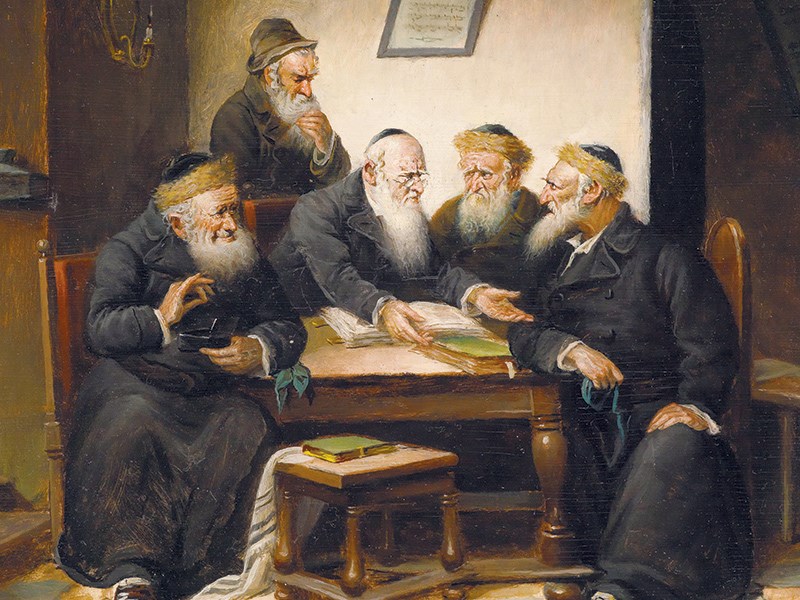Overview: In addition to the previous two aspects of the Oral Law, this third category are the laws that are purely of rabbinic origin. They are enactments and legislations purely independent of biblical Mitzvos or are safeguards intended to distance the populace from unintentionally transgressing a biblical law.
Throughout the generations, new developments and circumstances arise and authority is needed to decide the Law. For example, work on Shabbat includes igniting a fire.[i] When electricity was invented, debate arose as to the exact characteristic of the electric power, and whether it is considered a fire to be biblically prohibited. The rabbis used their religious authority to decide on the matter. Understandably, much disagreement and different opinions exists in this category.
Included in this category are enactments of the rabbis. More particularly, there are two sorts of enactments: precaution legislations (gezeiros) and independent legislations (takanos). Precaution legislations are decrees that the sages enforced to protect the masses from transgressing Biblical Law in times of need, such as in exile. For example, one is prohibited to write on Shabbat. The biblically defined extent of writing is a significant amount—which the rabbis concluded or received from Sinai to be—two letters. However, when the sages realized the ignorance of the general populace, they issued a rabbinic law not to write even one swipe of the pen. In effect, no confusion will arise amongst the masses if writing is allowed on the Shabbat or not. They also established stricter laws as the general Jewish population became more and more religious over the years (see “Did the Sages Overdo Judaism” for a discussion on that). This category of enactments as well, naturally calls for differences of opinions.
The second set of enactments are independent ones that are not necessarily connected to biblical Law or protecting it. Such would include, for example, the rabbinic establishment of Hanukkah and Purim to celebrate miracles. The festival of Purim is actually recorded in Esther,[ii] a book considered sacred to most the world. Arguments are allowed and are expected in this category of laws as well.
Sometimes they would debate whether or not to nullify a decree legislated by an earlier generation, of whose reason no more applies. Occasionally, the rabbis would debate the rationale behind certain legislations passed by an earlier generation; this, in effect, would have practical different implications.
So, what do we do in cases of arguments? Like in all disputes, it is usually best to follow the majority opinion of the sages at the time. Anyone, including a sage himself, who in practice disobeys the ruling of the majority is the one spoken of in Deuteronomy 17:12: “and the man who will intentionally disobey the ruling [of the High Court]… shall die…”
Arguments, actually, in a way bring out the truth of the topic. In society, and particularly in politics, we often put aside our view—even though we still hold of it—for the sake of unison and acceptance. It is a very “politically-correct” trait we have—but is deceiving in a sense. God wanted us to analyze, dissect, and debate every detail—if necessary—on matters with two or more intellectual angles. At the end of course, there will be a unified decision and one acceptance (and if not, it is only because of unwanted circumstances, such as persecution and inner powers struggles); but until then, arguing only brings out the truth. If one was to hide his view on the matter, that would only be hiding the potential truth for the sake of this “politically-correct” trait of ours which tends to make us concede and accept even though we disagree. Intellectual arguments are very healthy! Imagine scientists would never argue with one another or on a previous theory—we would still be believing in a flat Earth! [How much more so should we expect arguments by purely intellectual arguments, such as in the Talmud, where they are not subject to scientific analysis such as surveys, laboratories, and observations.]
[i] Exodus 35:3.
[ii] Ch. 9.




